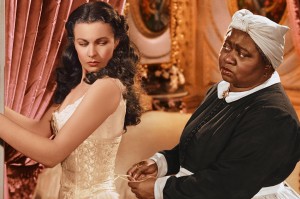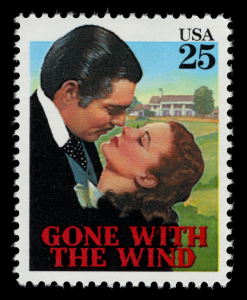One theater’s decision to stop showing the film draws harsh criticism
By Lynde Langdon
(WNS)–Amid the national debate over Confederate statues and symbols, a Memphis, Tenn., theater generated a monumental controversy by canceling future screenings of Gone with the Wind. Before a final showing Aug. 11, leaders at the Orpheum Theatre decided not to carry on tradition and screen the film next summer, in response to concerns from several patrons about racism in the story line.
The 1939 movie follows a white plantation owner’s daughter before, during, and after the Civil War. Scarlett O’Hara ruthlessly clings to her old way of life as the war and Reconstruction strip away her power, money, and privilege. If O’Hara is a symbol of the Old South, the portrayal is hardly complementary, though many viewers over the years have excused her moral shortcomings and embraced her charm, beauty, and perseverance.
The film’s treatment of African-Americans is more problematic. Slaves are portrayed as ignorant but affable and dependent on their white masters. Gone with the Wind singlehandedly codified in American culture the stereotype of “Mammy,” usually an elderly African-American woman of limited intelligence who cares for and caters to the whims of white children. Hattie McDaniel’s Academy Award for the role of O’Hara’s Mammy was a major cultural achievement for African-Americans in the arts, but the way the role belittled black women speaks to the entrenched racism of the time.
Theaters and museums have struggled for decades with how to best handle the tale, which, when adjusted for inflation, remains the top-earning movie in the history of American filmmaking. Timing and circumstance shined a glaring spotlight on the Orpheum in Memphis: Its most recent showing of Gone with the Wind took place the same night white supremacists marched with torches through Charlottesville, Va., to protest the proposed removal of a statue of Confederate Gen. Robert E. Lee.
According to Memphis’ The Commercial Appeal, Orpheum president Brett Batterson said he decided before the screening and the Charlottesville protests not to include the movie in next summer’s lineup. He made the decision after a professor of African-American studies at a local college approached him with concerns about the film.
“Why are we playing this anachronistic tribute to the Old South in a majority black city?” Charles McKinney of Rhodes College reportedly asked.
The Commercial Appeal learned of Batterson’s decision and ran a story on Aug. 25, two weeks after Charlottesville turned the national debate over Confederate symbolism into a bonfire of opinions. Scathing critiques of the theater poured in from across the country. Conservative commentators such as Todd Starnes and Rush Limbaugh accused the Orpheum of extreme political correctness. On the theater’s Facebook page, hundreds of commenters called Batterson and his colleagues communist, ignorant, cowardly, hypocritical (because they allow other films that promote racist stereotypes, such as The King and I), and worse.
So is Gone with the Wind a historic Hollywood classic or an artifact of exploitation? As is so often the case in the cultural and fine arts, it depends on whom you ask. One important difference between the movie and the much-debated statues of Confederate generals: While taking down a public monument denies everyone the chance to appreciate it, fans of Gone with the Wind can buy the movie on Blu-ray or DVD and enjoy it at home as often as they want.







